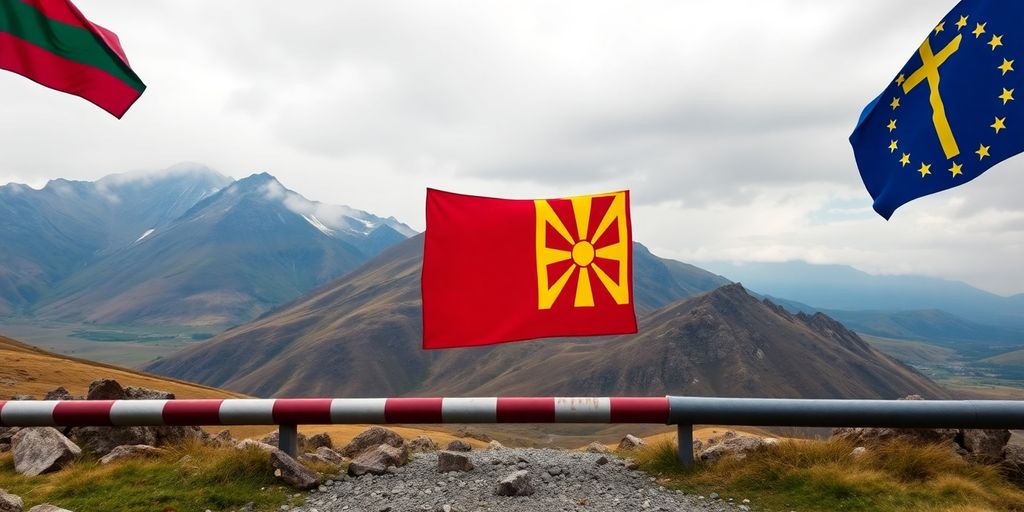North Macedonia’s journey toward full European Union membership has hit a significant roadblock due to ongoing disputes with Bulgaria. European Council President António Costa has urged North Macedonia to amend its constitution to recognize the Bulgarian minority, a move seen as essential for advancing EU accession talks that began in 2022.
Key Takeaways
- North Macedonia’s EU membership is stalled due to a dispute with Bulgaria over historical and cultural issues.
- European Council President António Costa has called for constitutional changes to include the Bulgarian minority.
- The previous government in North Macedonia agreed to the changes but lacked parliamentary support to implement them.
- Current Prime Minister Hristijan Mickoski insists that EU enlargement should be merit-based, not contingent on bilateral issues.
Background of the Dispute
The impasse between North Macedonia and Bulgaria centers on historical narratives, language, and cultural identity. Bulgaria has expressed concerns over how its minority is represented in North Macedonia, leading to demands for constitutional recognition. This issue has delayed North Macedonia’s EU membership talks, which were initiated alongside Albania in 2022, partly in response to geopolitical shifts following the war in Ukraine.
Recent Developments
During a recent visit to Skopje, President Costa emphasized the urgency of resolving the deadlock. He stated, "Now is the time to conclude the whole thing and open a new page," highlighting the need for North Macedonia to fulfill its previous commitments regarding the Bulgarian minority.
Despite this pressure, Prime Minister Mickoski has maintained that any constitutional amendments should be contingent upon Bulgaria’s approval of North Macedonia’s EU membership. He remarked, "We have a problem, and it should be a two-way street. If only one side delivers, it is not realistic."
The Path Forward
The situation remains complex, with both sides needing to navigate sensitive historical grievances. Costa’s visit is part of a broader tour of the Western Balkans, where he is assessing the progress of various countries toward EU integration. While Montenegro and Albania appear to be advancing, North Macedonia, along with Serbia, Bosnia-Herzegovina, and Kosovo, is lagging behind.
Conclusion
The future of North Macedonia’s EU aspirations hinges on resolving the impasse with Bulgaria. As both nations grapple with their historical narratives, the EU’s enlargement process faces significant challenges. The coming months will be crucial in determining whether North Macedonia can overcome these hurdles and move closer to EU membership.
Sources
- North Macedonia’s path toward full EU membership stalled by impasse with Bulgaria | Ap, The Derrick.
- North Macedonia’s path toward full EU membership stalled by impasse with Bulgaria, Goshen News.
- North Macedonia’s path toward full EU membership stalled by impasse with Bulgaria, The Lufkin Daily News.
- North Macedonia’s path toward full EU membership stalled by impasse with Bulgaria, ABC News.






